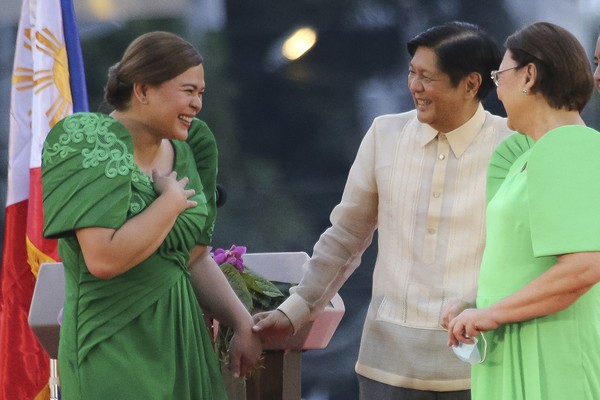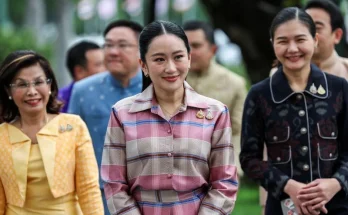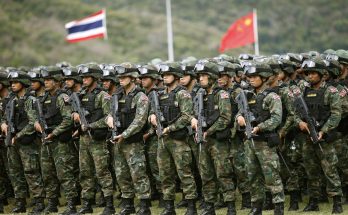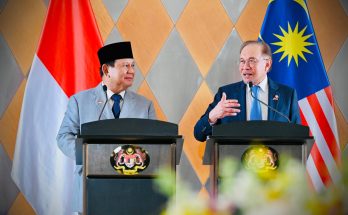BANDUNG, SEATIZENS – In an unprecedented and alarming press conference, Philippine Vice President Sara Duterte recently declared that she has ordered an assassin to kill President Ferdinand Marcos Jr. if she falls victim to an assassination herself. This startling revelation underscores the intensifying rift between two of the most powerful political dynasties in the Philippines, igniting widespread speculation and concern about the future of the nation’s political landscape.
During the press conference held before dawn, Duterte did not hold back her words. She stated, “I spoke to someone and said, ‘If I’m killed, just take out BBM [Marcos], [First Lady] Liza Araneta, and [House Speaker] Martin Romualdez. I’m not joking. Don’t stop until you kill them.'” Her statements not only pose a serious political threat but also represent potential criminal threats under Philippine law, which may bring severe legal consequences, such as imprisonment and fines.
Underlying Causes of the Tension
The motivations behind Duterte’s shocking threats stem from several factors:
- Cracks in Political Alliances
Sara Duterte, the daughter of former president Rodrigo Duterte, previously enjoyed a cooperative relationship with Marcos Jr. However, her resignation from Marcos’ cabinet in June indicates that their once-powerful alliance has disintegrated. This alliance played a crucial role in their significant electoral victories in 2022, where both secured overwhelming support from voters. By resigning, Duterte has signaled deeper grievances that have now surfaced dramatically. - Budget Cuts to the Vice President’s Office
House Speaker Martin Romualdez, a cousin of President Marcos, has further strained relations by enacting budgetary measures. He reduced the vice president’s office budget by nearly two-thirds, drawing accusations of political maneuvering aimed at diminishing Duterte’s influence. Such actions increase tensions between the two factions and deepen political divides. - Allegations of Incompetence
In October, Sara Duterte openly accused Marcos of incompetence and made chilling comments regarding violence, stating that she envisioned beheading him. This provocative rhetoric exacerbates the already fragile relationship between the two families. Key governance differences, including foreign policy and the controversial drug war initiated by her father, have also led to ongoing conflicts. - Lack of Official Duties for the Vice President
In the Philippines, citizens elect the vice president separately from the president. Thus, the vice president typically does not enjoy designated official duties. Many past vice presidents engage in social development projects, while some receive cabinet positions. As the country prepares for midterm elections in May, these developments become crucial, presenting a test for President Marcos’ governance and public support. The elections provide an opportunity for him to consolidate power before the end of his term in 2028.
Historical Context of Political Violence
The complex and often violent political history of the Philippines serves as a backdrop for the current situation. For instance, the assassination of Benigno Aquino upon his return from political exile in 1983 remains a poignant reminder of the dangers associated with political rivalry in the country. Given the current tensions, many fear that these conflicts might lead to further instability and violence.
The implications of Sara Duterte’s statements extend beyond mere political dramatics. As tensions rise, the stability of the Philippine political system faces potential threats, with consequences for governance and public safety. Political analysts and citizens closely monitor the situation, seeking to understand how these conflicts will influence the future trajectory of Philippine politics.
Read also : Indonesian Police raid drugs factory in Bali. Earn IDR 1.5 trillion per 2 months
In conclusion, the unfolding drama highlights personal animosities between political figures while also reflecting the broader challenges facing democracy in the Philippines today. As both families navigate a fraught landscape filled with political stakes and historical legacies, the nation must brace itself for the potential repercussions of these escalating conflicts.
(Firyal Trinidad)




